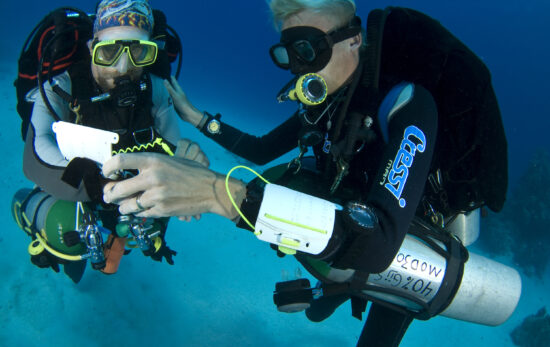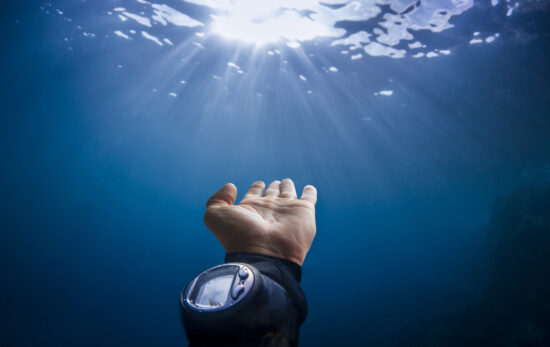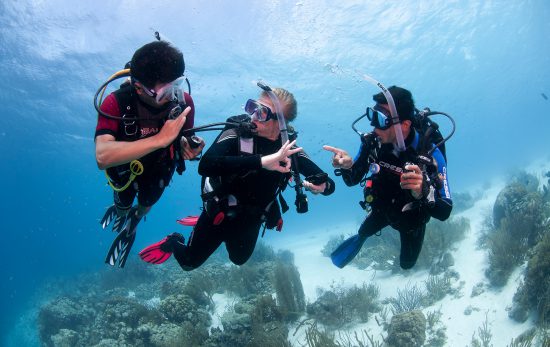Night diving is one of the most incredible types of diving! But, it can also be daunting. So, here are a few night diving tips and reasons to give it a go!
I’ve often joked in the past that there’s no such thing as night diving in Scotland, where I dive locally. It can be so dark beneath the waves here all dives feel like night dives, so why bother? Now it’s not true, but for a long time, I took some convincing to try diving at night. It’s definitely not because I’m scared of the dark… honest! Joking aside, it can be rather murky beneath our waters even at the height of summer. So, you could be forgiven for thinking that not much would change at night, but how wrong you would be.
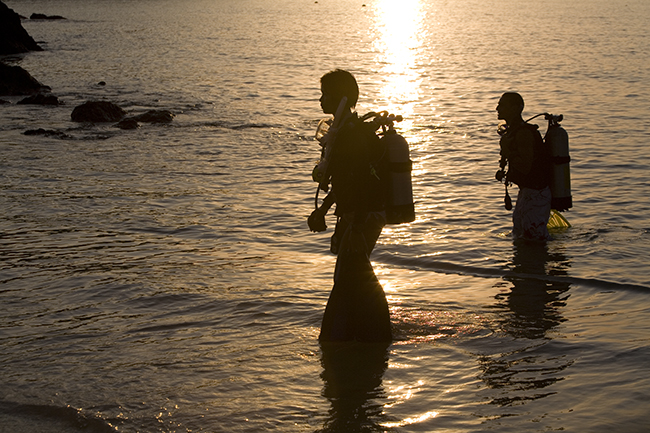
Is Night Diving Dangerous?
Well, there is risk involved in all scuba diving, which is why it’s important to be properly trained and prepared for the dive you’re planning. Night diving definitely comes with its own set of challenges. But, completing the Night Diver specialty course guides you through these challenges and prepares you to enter a world that’s probably as close to floating in space as many of us will ever get. As cheesy as it sounds, night diving really is like being in another world.
Tip #1: Get Ready to Spot Marine Life
Before I started diving, I didn’t think much about how marine life would react differently to daytime and nighttime. I had no idea there were such things as nocturnal marine animals. So, when my dive buddies said so, I thought they were winding me up.
It’s incredible how a dive site can change once the sun goes down. I would always suggest heading to one of your local dive sites for night diving. Not only are you familiar with it, you’ll be amazed just how it changes. It’s as if the seabed comes alive once it gets dark! Watching the creatures scuttling around in and out of the torch beams is like something from another world.
The variety of life can change dramatically as well. In Scotland, we often find the likes of bobtail squid and octopus popping out. On a site you’ve visited countless times, it’s a real shock to find out that these amazing creatures that were always there, just hiding out of sight.
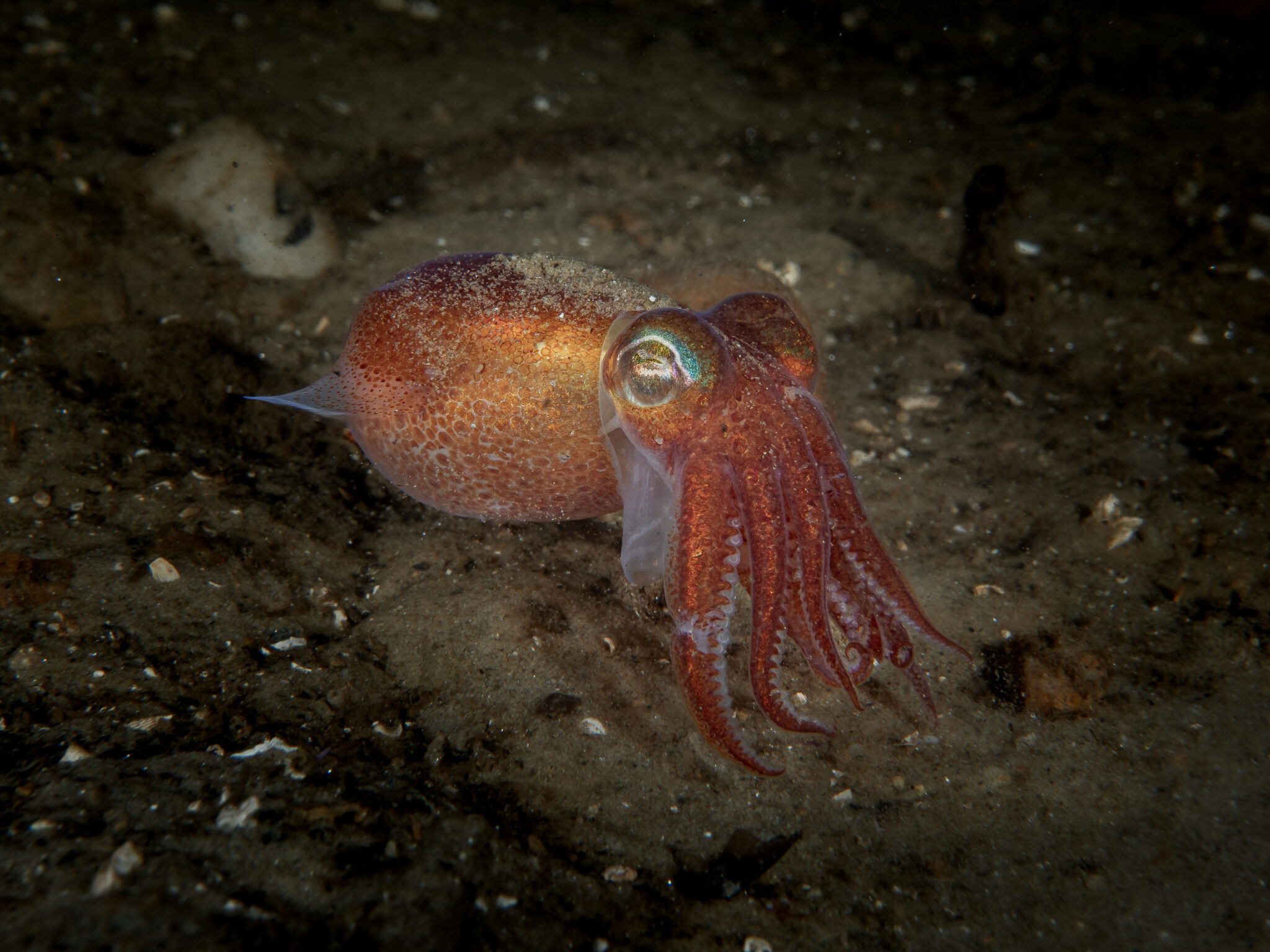
Tip #2: Brush Up on Navigation
One my biggest night diving tips is brush up on your navigation skills and dive planning before entering the water. You should always be planning the dive and diving the plan, letting people know where and when you expect to enter and exit the water. But, this becomes even more important for a night dive where it can be very easy to become disorientated on the surface, meaning you may not be able to find your exit point.
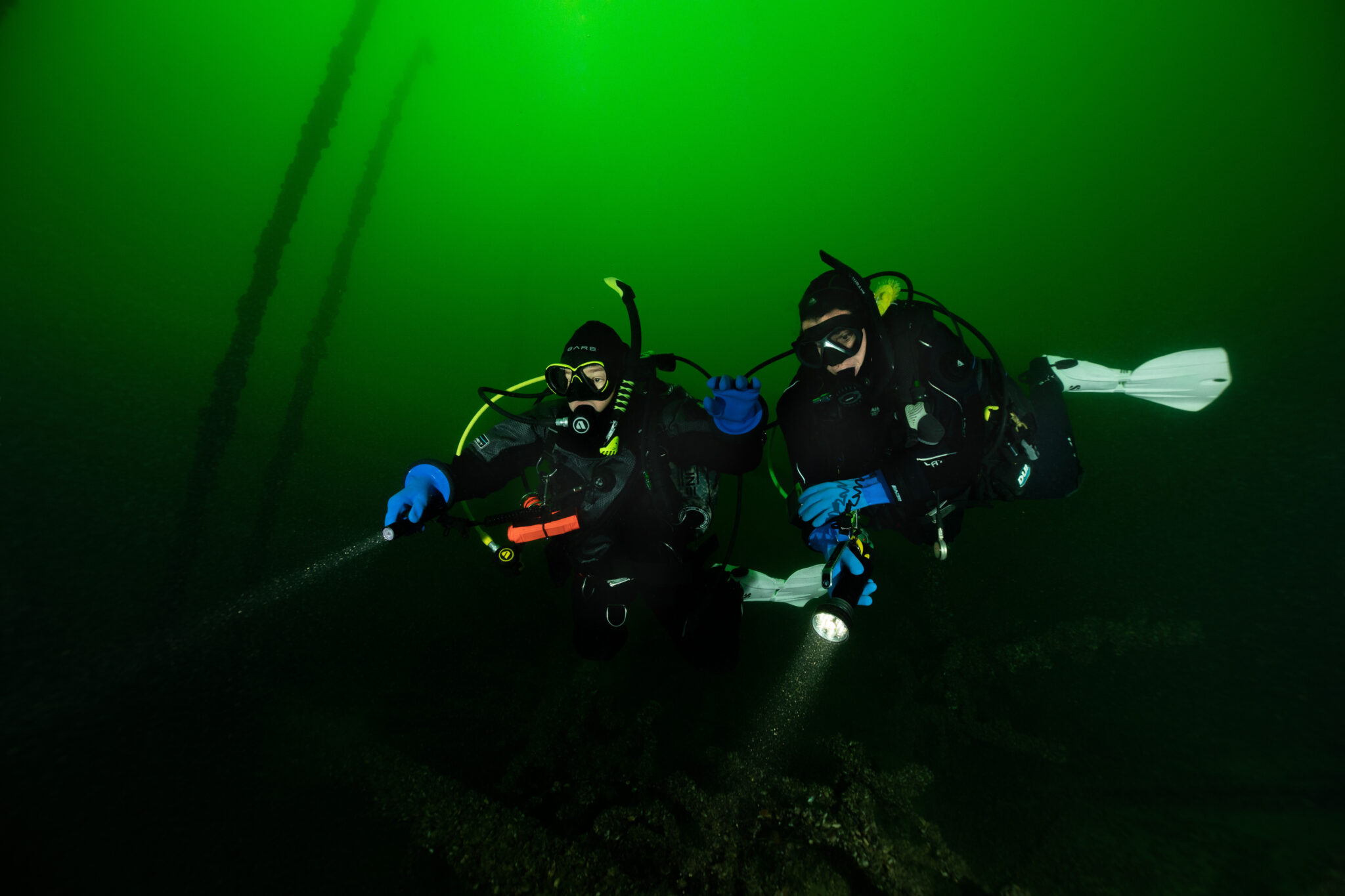
Tip #3: Let There Be Light!
Another tip for night diving is to carry not just one torch (aka flashlight or dive light), but two. In fact, having at least two lights is required. More than once, I’ve been halfway through the dive and found myself plunged into darkness as my main light gives out, despite being sure I’d fully charged it beforehand. A redundant dive light gives you the peace of mind that you won’t be left in the pitch black depths. On top of having at least two lights, it’s a good idea to have a small strobe or something like a glow stick you can attach to your BCD. That way it’s easier for your buddies or the boat crew to find you should your main torch fail.
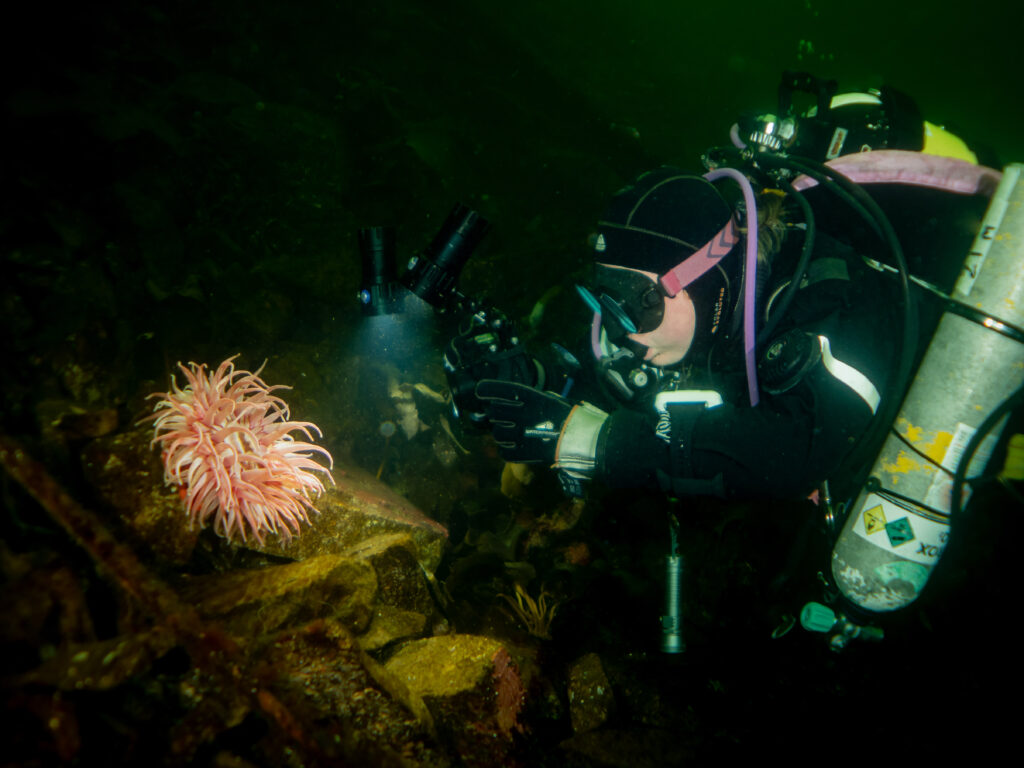
Tip #4: Know Your Night Diving Signals
As well as helping spot critters, torches (aka dive lights or flashlights) will become your main method of communication during a night dive. A very important night diving tip is to check both you and your buddy are comfortable with night diving signals using dive lights.
Use a big circle motion with the light for ok or make quick side to side horizontal lines to indicate you’ve got a problem. You can also use the light to shine it on your hand that’s making a signal. Clarifying the signals before entering the water means you’re both on the same page, keeps the dive relaxed and avoids awkward arguments on the surface afterwards.
Oh, and here’s another wee tip, one I need to remember myself actually. Don’t shine your light directly in your buddy’s face. I’ve had more than one telling off for getting excited when I’ve spotted something and blinded my buddy in the process of trying to show them.

Despite all my initial worries, I find night diving to be possibly the calmest and most relaxed type of diving. It’s a feeling like no other, and if there’s a specialty course I’d recommend, the Night Diver specialty course is it!
Want to save 20% on your Night Diver eLearning course? Sign up for PADI Club and start saving on eLearning and more!



